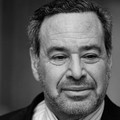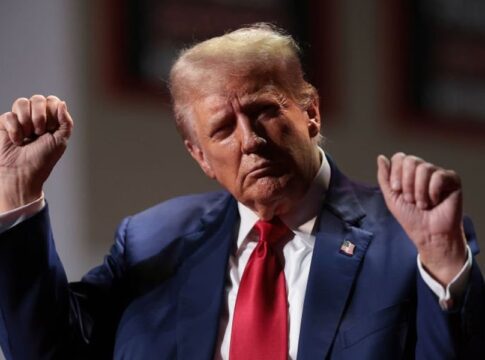Mexico has sworn in its first woman president. This looks like a bold step for equality and progress—all the more impressive because the new president, Claudia Sheinbaum Pardo, is of Jewish origin. Her father’s parents immigrated to Mexico from Lithuania in the 1920s; her mother’s parents escaped to Mexico from Axis-aligned Bulgaria in the early 1940s.
But Mexico is not advancing toward an egalitarian future. It is regressing into an authoritarian past.
President Sheinbaum’s predecessor, Andrés Manuel López Obrador, systematically smashed the checks and balances of Mexican democracy, subjecting once-independent government institutions to the personal power of the president.
Independence of the judiciary? Gone, abolished by the last major legislation of his presidency. Judges will now be elected by partisan ballots. Independent election administration? Crippled. Nonpartisan enforcement of government-transparency rules, nonpartisan antitrust enforcement, nonpartisan telecommunications regulation, nonpartisan energy regulation? Abolished, abolished, abolished, and abolished. Only the central bank, after a long struggle, will retain its autonomy from direct presidential control.
The biggest question for the future of Mexico: Who will wield the power that López Obrador consolidated?
The obvious answer would seem to be that the new president will inherit the power of the old. Sheinbaum is now the legal head of state, the legal head of government. She can hire and fire government employees. She signs bills into law or vetoes them. She commands the security services and the armed forces. Presumably, she will be the new boss of the Mexican state.
But things may prove more complicated than that.
López Obrador built a strong presidency atop a weak Mexican state. Control of large parts of Mexican territory is contested between the government and criminal gangs, the so-called cartels. Mexico’s political system is gravely penetrated by organized crime. About a quarter of the economy—and more than half of all employment—is informal, laboring outside the law, untaxed and unpoliced.
López Obrador’s power was based not only on his legal authority as president but also on his personal charisma and his complex and mysterious arrangements with the cartels. López Obrador could not bequeath that other dimension of his power to a successor even if he wanted to—and there is no evidence that he did. He favored Sheinbaum over other potential successors because she was the candidate who most lavishly praised López Obrador and his “fourth transformation” of Mexican society. López Obrador may also have gambled that by choosing the least magnetic successor with the smallest personal following, he might best extend his own hold on popularity beyond the end of his term.
López Obrador has hemmed Sheinbaum in with new restrictions that he might use to threaten her power. Mexican presidents are now subject to recall, a López Obrador innovation. He easily survived his own recall election in 2022; but if he, the most popular of recent Mexican presidents, were to campaign for a recall of his less popular successor, the result might be very different.
In short, López Obrador has orchestrated his succession in such a way that he may continue as the real power in the land even after leaving office. This device has a precedent in Mexico. In the mid-1920s, a former general named Plutarco Elías Calles held the presidency for four years. Although he left office at the end of his term, he still controlled the government for another five years, naming and replacing successors at will. Mexicans call this period the “Maximato” because Calles remained the “maximum leader” in effect, if not in form.
Many presidents since Calles have aspired to control their successors in this way. None has succeeded. Will López Obrador? Again, the answer is complicated.
First is the fact of human mortality. López Obrador is 70 years old and has a history of heart trouble; rumors persist about his possibly waning health.
Second, whether a López Obrador–inspired attempt to recall Sheinbaum would go smoothly is far from clear. Recalling Sheinbaum would open the presidency to a new election, with possibly unpredictable results. López Obrador governed through his Morena party. Until now, it functioned as a personal movement, wholly obedient to López Obrador’s command. But many people have now built political careers thanks to Morena: governors, senators, members of Congress. If an out-of-office López Obrador were to command them to risk their own futures in order to punish President Sheinbaum, would they do it? Maybe not. The price of guessing wrong and backing a disfavored cause in Mexican politics can be violent death at the hands of the cartels: At least 34 candidates were murdered in the 2024 elections. Mexican politicians want protection by the police and army—and that protection can be provided only by the current president, not the past one.
If the party is to decide a future power struggle between the ex-president and the current president, would that make the party itself the inheritor of power? The party, after all—not the president—will be picking Mexico’s judges, at least in theory. Judges will have to compete on party lists for their jobs. Because Morena is by far the strongest party, its loyalists will decide who rules on Mexico’s law.
Throughout most of the 20th century, Mexico was ruled by a one-party oligarchy, not a dictatorship. Even Calles was eventually toppled and banished by the very party machine that he had created. Every president after Calles understood that his power was granted to him by the party for a limited term. That was the system under which López Obrador, too, grew up, and for which he has expressed so much reverence during his decades-long political career.
In many ways, Mexico seems to have reverted to that past: Morena now resembles the single-party oligarchy of the mid-20th century. Morena holds the majority of state governments and has a big enough majority in Congress to rewrite the constitution at will. Morena wields enormous patronage power over many areas of life in Mexico: notably, energy production, access to higher education, and social security.
Since the turn of the century, however, Mexico has evolved away from the society that supported one-party government. Among other changes, the old system depended on state control of the economy. Mexico today is a much more open economy than it was in the 1950s and ’60s. Free-trade agreements with Canada and the United States restrain the power of the Mexican government to use economic favoritism as a tool. The old ruling party held power as a representative of all major social interests. As dominant as Morena is, López Obrador’s party faces significant opposition from many sectors—especially Mexico’s business community.
President and party are not the only sources of political power in Mexico. López Obrador also created a potential third one: the military.
Modern Mexico successfully excluded the army from politics. López Obrador invited it back in. He entrusted the military with civilian functions—so that, for example, it now manages Mexico’s borders and customs. It is also heavily involved in national infrastructure projects: building an environmentally devastating railway line through the Yucatán, operating a new airport for Mexico City, running a civilian airline.
As president, López Obrador curried favor with the military assiduously. When a high-ranking general was arrested by the United States on drug-trafficking charges, López Obrador threatened to end all law-enforcement cooperation with U.S. authorities unless the charges were dropped and the general released. The Trump administration yielded; in 2023, López Obrador personally decorated the accused general.
The Mexican military’s long and proud tradition of political abstentionism is under pressure. If the Mexican state continues to lose control of territories to the cartels, the military will very conceivably feel called to win a war that the civilian government apparently cannot.
López Obrador’s presidential legacy is the weakening of the state and the subversion of institutions that used to protect Mexicans’ freedoms. The symbolic progress of Sheinbaum’s ascension to the presidency should not conceal the reality of Mexico’s democratic regression. The liberal-democratic ideal in Mexico has not yet been extinguished. Thousands of Mexicans have marched and voted for that ideal against the authoritarianism of López Obrador. But the ideal is flickering—and those Mexicans who still uphold it feel alone and in extreme personal danger in a society where violent death can claim anyone, anytime.



